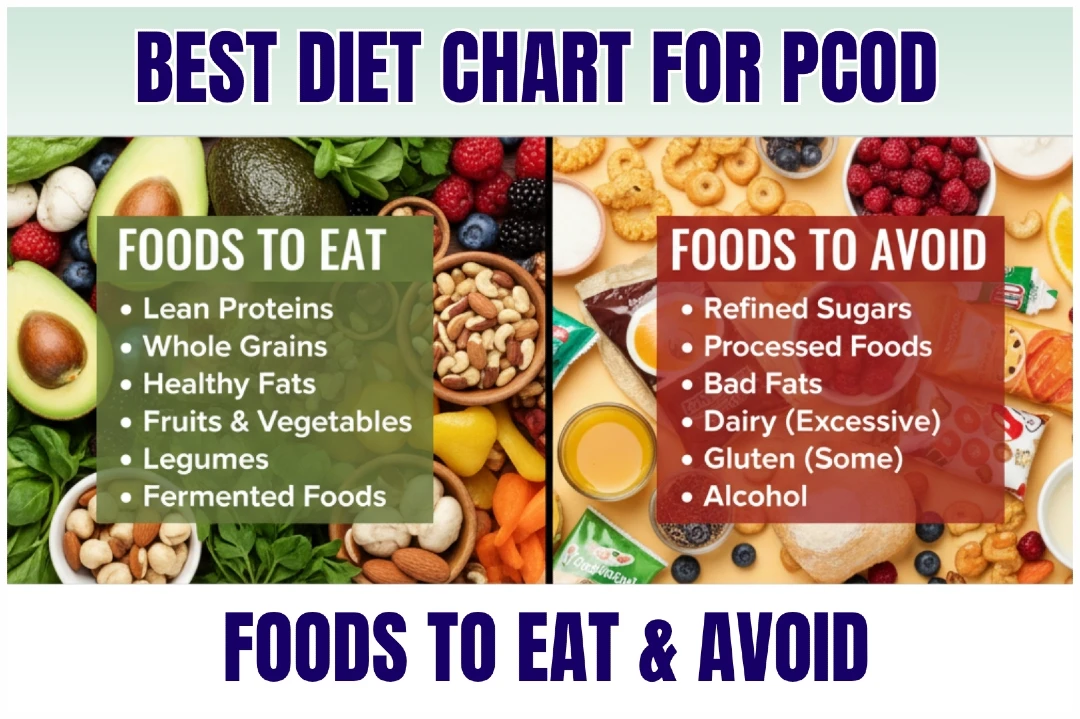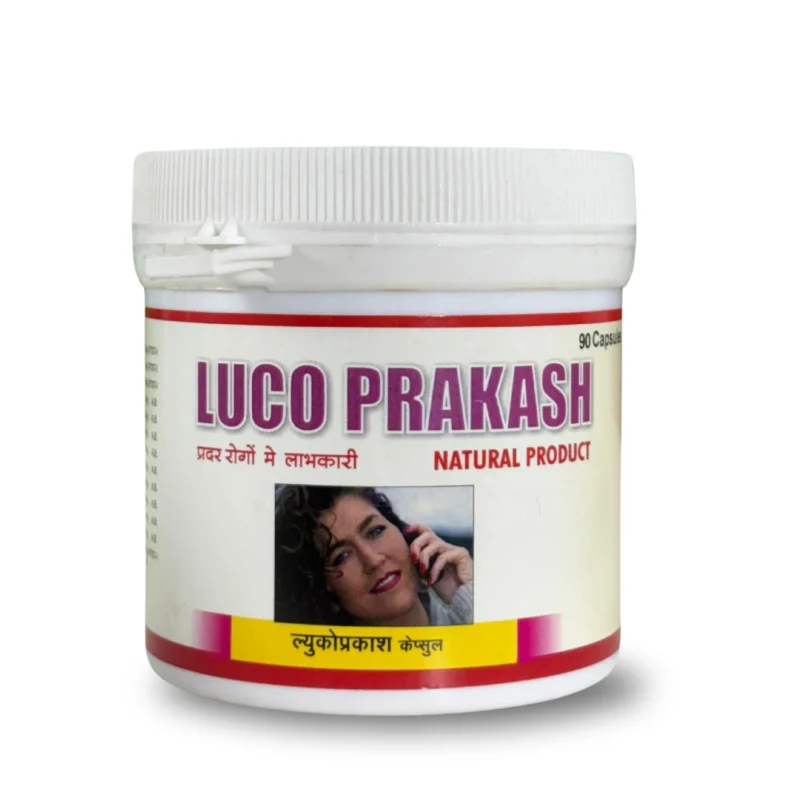Best Diet Chart for PCOD: Foods to Eat & Avoid

Best Diet Chart for PCOD: Foods to Eat & Avoid
Polycystic Ovary Disease (PCOD) is one of the most common hormonal problems faced by women today. It affects periods, weight, skin, mood, and even fertility. While PCOD cannot be “cured” overnight, the right diet and lifestyle choices can make a big difference in managing the symptoms.
Along with a healthy diet, many women also choose natural supplements to support their hormones. Nari Urja is one such product specially formulated to help women with PCOD by balancing hormones, improving energy, and supporting regular cycles. Combined with the right food plan, it can give better results.
Why Food Matters in PCOD
Food is more than just fuel — it directly affects hormones, insulin, weight, and overall health. Here’s why diet plays such a big role in PCOD:
- Controls Insulin Resistance – Women with PCOD often have high insulin levels, which can cause weight gain, irregular periods, acne, and excess hair growth. Eating low glycemic foods helps keep insulin in control.
- Helps Weight Management – Even a small weight loss of 5–10% improves symptoms, periods, and fertility.
- Reduces Inflammation – Processed food increases inflammation in the body, while natural foods with omega-3s, fibre, and antioxidants calm it down.
- Balances Hormones – Nutrients like zinc, magnesium, vitamin B, and healthy fats help regulate periods and improve mood.
- Improves Fertility – Eating balanced meals regularly helps ovulation and supports healthy cycles.
Foods to Avoid with PCOD
Some foods make PCOD worse by spiking insulin or creating more inflammation. Try to limit or avoid:
- Refined carbs & sugar – white bread, pastries, sweets, cold drinks.
- Junk & processed foods – chips, fried snacks, packaged fast food.
- Trans fats & too much saturated fat – fried foods, hydrogenated oils, processed snacks.
- Excess dairy (for some women) – full-cream milk, ice cream, sweetened yoghurt.
- Caffeine & alcohol – disrupt hormones and affect the liver.
- Refined oils & salty foods – too much oil and salt increase inflammation and bloating.
Foods to Eat / Foods That Help with PCOD
Including these can help improve symptoms. Focus on whole foods, balanced macro-nutrients, good fats, fibre, lean protein.
| Category | Examples | Benefits for PCOD |
| Low Glycemic Index Carbohydrates | Whole grains (oats, quinoa, barley), millets (ragi, jowar, bajra), brown rice, whole wheat. | Slow blood sugar rise; better insulin control. |
| Lean Protein | Lentils, beans, legumes; tofu; chicken breast; fish (especially fatty fish like salmon, sardines); eggs. | Helps with satiety; muscle mass; helps hormone production. |
| Healthy Fats | Nuts (almonds, walnuts), seeds (chia, flax, pumpkin), olive oil, avocado. | Anti-inflammatory, supports hormone production. |
| Fibre-Rich Foods | Vegetables (leafy greens, cruciferous like broccoli, cauliflower), fruits (berries, apples), legumes. | Slow digestion; helps with estrogen metabolism; improves gut health. |
| Anti-inflammatory Foods | Turmeric, ginger, garlic, cinnamon, berries, green tea. | Reduces oxidative stress; helps hormonal balance. |
| Foods Rich in Micronutrients | Zinc (pumpkin seeds, lentils), magnesium (leafy greens, nuts, seeds), vitamin D (sun exposure, fortified foods), B vitamins. | Supports endocrine function; reduces androgen excess; helps mood. |
| Hydration | Water, herbal teas. | Supports metabolism and excretion of hormones. |
7-Day PCOD Diet Chart
Here’s a sample diet chart for one week. Portions may be adjusted based on your age, activity, body weight, medical advice.
| Day | Breakfast | Mid-Morning Snack | Lunch | Afternoon Snack | Dinner |
| Day 1 (Mon) | Oats porridge with flax seeds + berries + green tea | Apple + almonds | Brown rice + dal + sautéed veggies + salad | Greek yoghurt + chia seeds | Grilled fish/paneer + quinoa + broccoli + spinach |
| Day 2 (Tue) | Besan chilla + mint chutney + herbal tea | Pear / orange | Millet roti + chickpea curry + salad + curd | Roasted chana | Stir-fried tofu/chicken + veggies + small sweet potato |
| Day 3 (Wed) | Vegetable upma + 1 boiled egg | Walnuts + fruit | Whole wheat roti + rajma (kidney beans) + salad | Carrot & cucumber with hummus | Baked salmon / paneer + greens + brown rice |
| Day 4 (Thu) | Poha with peas & peanuts + green tea | Papaya / kiwi | Brown rice / millet + fish curry / veg curry + salad | Buttermilk + roasted seeds | Vegetable soup + whole grain bread + salad |
| Day 5 (Fri) | Spinach + banana + flax seed smoothie (Greek yoghurt / protein powder) | Mixed nuts | Millet roti + moong dal + leafy sabzi + salad | Bowl of mixed berries | Stir-fried chicken/tofu + bell peppers + quinoa/millet |
| Day 6 (Sat) | Whole wheat toast + avocado spread + 2 boiled eggs | Guava + sunflower seeds | Mixed grain pulao + chickpea salad + raita | Cucumber + tomato slices | Grilled fish/paneer tikka + steamed veggies + chapati |
| Day 7 (Sun) | Idli/dosa (mixed lentils) + sambar + coconut chutney | Apple + natural peanut butter | Brown rice/millet + veg korma + dal + salad | Roasted makhana / spiced nuts | Soup + whole grain chapati + sautéed greens |
Tips:
- Eat regularly (every 3-4 hours) to avoid blood sugar crashes.
- Include protein at each meal.
- Use healthy oils (olive oil, mustard oil, small ghee if tolerated).
- Avoid added sugar; keep desserts rare and small.
- Incorporate at least 30 minutes of moderate physical activity daily (walking, yoga, strength training etc.).
Managing PCOD is not about strict deprivation, but smart choices. By focusing on whole, nutrient-dense foods, limiting refined sugars and processed foods, maintaining a balanced diet, and integrating lifestyle changes like exercise and stress management, many symptoms of PCOD can be significantly reduced.
Along with these diet tips, products like Nari Urja can offer supportive micronutrients or herbal aids. However, they complement – not replace – good food, physical activity, and medical care.














